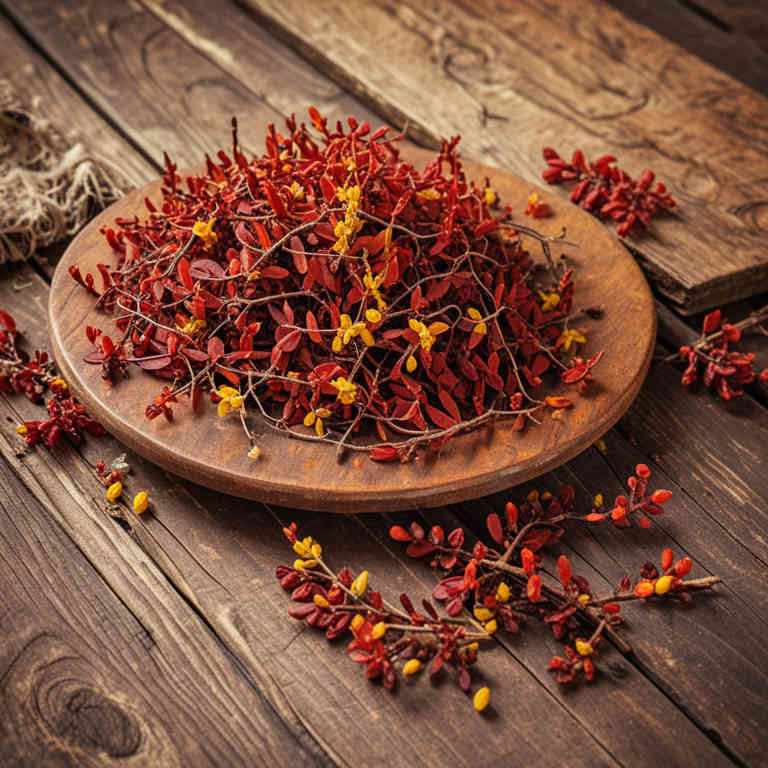Berberis vulgaris decoction for medicinal use

Berberis vulgaris decoction is a traditional herbal preparation made by boiling the roots of the barberry plant.
It contains active compounds such as berberine, which have antimicrobial, anti-inflammatory, and digestive properties. This decoction is commonly used in herbalism to support digestive health and treat conditions like dysentery and infections. It is also employed to manage skin infections and as a natural remedy for fever.
Due to its potency, it is often used under the guidance of a qualified herbalist.
Uses
Berberis vulgaris decoction has been used to treat a variety of ailments across different cultures for centuries.
Historically, it was employed in traditional Chinese and Ayurvedic medicine to address digestive issues, skin conditions, and infections due to its antimicrobial properties. In ancient Europe, it was used to alleviate inflammation and as a remedy for urinary tract infections. Modern research has validated some of these traditional uses, showing its potential in treating bacterial infections and supporting digestive health.
Today, it is still utilized in herbal medicine and is being explored for its broader therapeutic applications in contemporary pharmacology.
Benefits
Berberis vulgaris decoction has health benefits such as antimicrobial, anti-inflammatory, and antioxidant properties.
It is traditionally used to support digestive health and may help in the treatment of skin conditions. The decoction contains berberine, a compound known for its potential to improve metabolic function and support cardiovascular health. It may also aid in managing blood sugar levels and has been used in traditional medicine for its antidiarrheal effects.
However, it should be used with caution and under the guidance of a healthcare professional.
Constituents
Berberis vulgaris decoction active constituents include berberine, berbamine, and berberrubine, which are alkaloids known for their pharmacological properties.
These compounds exhibit antimicrobial, anti-inflammatory, and antidiabetic effects, making the decoction useful for various health purposes. Berberine, in particular, is recognized for its ability to support metabolic health and improve gut microbiota balance. The decoction is traditionally used to treat digestive issues, skin infections, and inflammatory conditions.
Its active constituents contribute to its reputation as a valuable herbal remedy in traditional medicine systems.
Preparation
To make Berberis vulgaris decoction, start by gathering 1 to 2 tablespoons of dried Berberis vulgaris root.
Rinse the root under running water and chop it into small pieces to increase surface area for extraction. Place the chopped root in a pot and add about 2 cups of water. Bring the mixture to a boil, then reduce the heat and let it simmer for 15 to 20 minutes.
Strain the liquid through a fine mesh strainer or cheesecloth to remove the plant material, and allow the decoction to cool before use.
Side Effects
Berberis vulgaris decoction may lead to gastrointestinal upset, including nausea, vomiting, and diarrhea, due to its potent alkaloid content.
It can also cause liver toxicity, particularly with prolonged use or high doses, as some studies suggest it may interfere with liver function. Individuals with pre-existing liver conditions should avoid this preparation altogether. Additionally, it may interact with certain medications, such as those metabolized by the liver, increasing the risk of adverse effects.
It is important to consult a healthcare professional before using Berberis vulgaris decoction, especially for extended periods or in combination with other treatments.